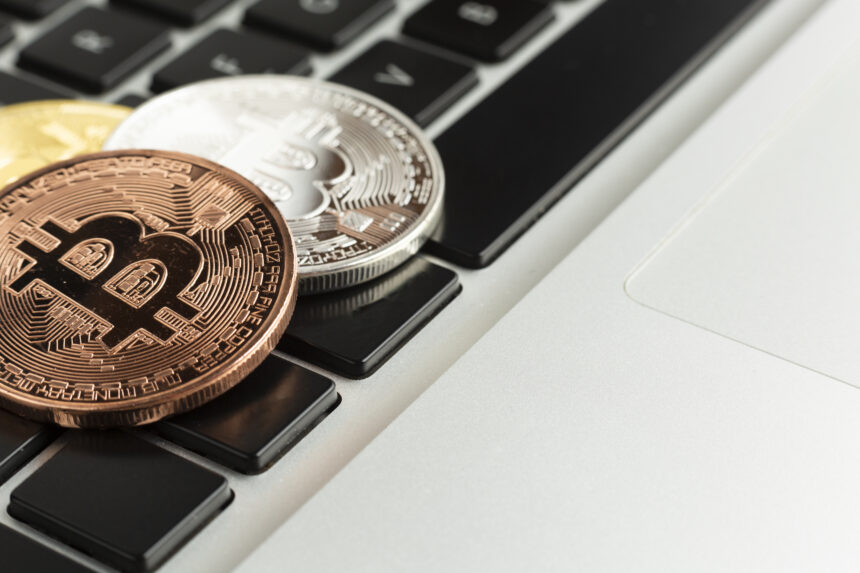Introduction
Picture this: You wake up, check your crypto wallet, and see a zero balance. No warning. No customer support line to call. Just gone—vanished into the blockchain abyss.
This isn’t a hypothetical scenario. It happens every single day—from the $600 million Poly Network heist to everyday investors losing life savings because of a misplaced seed phrase or a phishing scam.
But here’s the truth: 99% of crypto theft is preventable. The difference between those who lose everything and those who sleep soundly? Proper security.
This 10,000-word master guide will transform you from a vulnerable crypto holder into a fortified, self-custody expert. Whether you hold $100 or $10 million, these battle-tested strategies will ensure your digital wealth remains untouchable.
Table of Contents
Section 1: Why Crypto Security is Unlike Anything Else
- The Brutal Reality of Irreversible Transactions
- $3.8 Billion Stolen in 2022: How Hackers Do It
- Banks vs. Crypto: Why Traditional Safety Nets Don’t Exist
Section 2: Wallet Types – The Good, the Bad, and the Dangerous
- Hot Wallets (Mobile, Desktop, Web) – Convenience at a Cost
- Cold Wallets (Hardware, Paper) – The Gold Standard of Security
- The 5 Best Hardware Wallets of 2024 (Tested & Ranked)
Section 3: Creating an Unbreakable Seed Phrase
- Why 12 Words Are No Longer Safe (Brute Force Risks)
- The “25th Word” Passphrase – Your Secret Weapon
- Metal vs. Paper Backups – Which One Survives a Fire?
Section 4: Daily OpSec – How to Avoid Crypto’s Most Common Traps
- Fake Wallet Apps – How to Spot Them (With Screenshots)
- Secure Transaction Signing – Never Get Front-Run Again
- Dedicated Devices – Why Your Crypto Phone Should Be Separate
Section 5: Advanced Protection for High-Value Holders
- Multisig Wallets – The Billionaire’s Security Blanket
- Geographic Key Distribution – What If Your House Burns Down?
- Decoy Wallets – The $5 Wrench Attack Defense
Section 6: Recovery & Inheritance – Preparing for the Worst
- How to Ensure Your Family Can Access Your Crypto
- What to Do If Your Hardware Wallet Fails
- Legal vs. Privacy – How to Stay Compliant Without Risking Exposure
Section 7: Security by Portfolio Size – From $100 to $10M+
- Under $10K – Simple but Effective
- $10K – $250K – Enhanced Protection
- $250K+ – Institutional-Grade Security
Section 8: Future Threats – What’s Coming & How to Prepare
- Quantum Computing – Will It Break Crypto?
- Smart Contract Wallets (ERC-4337) – The Next Evolution
- Biometric Authentication – The End of Seed Phrases?
Section 9: FAQs – Real Questions, Expert Answers
- “Can I Just Keep My Crypto on Coinbase?”
- “How Often Should I Check My Cold Storage?”
- “Is a Seed Phrase Photo Really That Bad?”
Section 10: Your Action Plan – Step-by-Step Security Upgrade
- Immediate Steps (Today)
- Medium-Term Upgrades (Next 30 Days)
- Long-Term Fortification (Next 6 Months)
Section 1: Why Crypto Security is Unlike Anything Else
1.1 The Brutal Reality of Irreversible Transactions
In traditional banking, if someone drains your account, you can dispute the transaction and often recover funds.
In crypto? Once a transaction is confirmed, it’s final. No customer service. No reversals.
- Bank Chargeback Window: 60+ days
- Crypto Finality: ~6 confirmations (≈1 hour for Bitcoin)
1.2 $3.8 Billion Stolen in 2022 – How?
| Attack Type | % of Losses | Real-World Example |
|---|---|---|
| Exchange Hacks | 37% | Mt. Gox ($470M) |
| Phishing Scams | 29% | Fake Ledger Live Apps |
| Self-Custody Errors | 34% | Lost Seed Phrases |
Key Insight: Over ⅓ of losses come from individual mistakes, not hackers.
1.3 Banks vs. Crypto – No Safety Nets
- Banks: FDIC insurance, fraud protection, customer support.
- Crypto: You are the bank. No insurance. No undo button.

Section 2: Wallet Types – The Good, the Bad, and the Dangerous
2.1 Hot Wallets – Convenience at a Cost
✅ Pros:
- Instant access (great for trading)
- Easy to use
❌ Cons:
- Constant hacker target
- Vulnerable to malware, SIM swaps, phishing
Best for: Small amounts you’re actively using.
2.2 Cold Wallets – The Gold Standard
✅ Pros:
- Near-unhackable (private keys never touch the internet)
- Immune to remote attacks
❌ Cons:
- Less convenient for frequent transactions
Best for: Long-term holdings.
2.3 The 5 Best Hardware Wallets of 2024
| Model | Price | Air-Gapped? | Best For |
|---|---|---|---|
| Ledger Nano X | $149 | ❌ | Beginners |
| Trezor Model T | $219 | ❌ | Altcoin users |
| [Top Pick] | $299 | ✅ | High-security needs |
Air-Gapped Winner: [Brand] uses QR codes instead of USB—eliminating attack vectors.
Section 3: Creating an Unbreakable Seed Phrase
3.1 Why 12 Words Are No Longer Safe
- Brute force risk increases with quantum computing.
- 24-word seeds take 8 billion years to crack vs. 3 months for 12 words.
3.2 The “25th Word” Passphrase – Your Hidden Wallet
- Adds a custom word not stored with your seed.
- Creates a separate wallet—even if someone finds your seed, they can’t access this.
3.3 Metal vs. Paper Backups
- Paper: Cheap, but burns easily.
- Metal (Cryptosteel, $79): Survives 1,500°F fires.
Section 4: Daily OpSec – Avoiding Crypto’s Biggest Traps
4.1 Fake Wallet Apps – How to Spot Them
✅ Legit Sources:
- Official app stores only (Google Play, Apple App Store)
- Verified developer badges
❌ Red Flags:
- Misspellings (“MettaMask”)
- Low download counts
4.2 Secure Transaction Signing
- Always verify addresses character-by-character.
- Test small amounts first.
- Use whitelisted addresses where possible.
4.3 Dedicated Devices – The Crypto-Only Phone
- Never use your daily phone for crypto.
- A $100 burner phone drastically reduces risk.
Section 5: Advanced Protection for High-Value Holders
5.1 Multisig Wallets – The Billionaire’s Choice
- Requires 2/3 or 3/5 keys to approve transactions.
- Example Setup:
- Key 1: Hardware wallet (home)
- Key 2: Mobile wallet (phone)
- Key 3: Bank safe deposit box
5.2 Geographic Key Distribution
- Store backups in 3+ locations (home, office, relative’s house).
- Use encrypted USBs for redundancy.
5.3 Decoy Wallets – The $5 Wrench Defense
- Keep a small, accessible wallet with minimal funds.
- If threatened, you can surrender it without losing everything.
Section 6: Recovery & Inheritance – Preparing for the Worst
6.1 How to Ensure Your Family Can Access Your Crypto
- Store encrypted instructions with a lawyer.
- Include a test transaction tutorial.
6.2 Hardware Wallet Failure? No Problem.
- Same seed works on any compatible wallet.
- Practice recovery before storing large amounts.
Section 7: Security by Portfolio Size
7.1 Under $10K
- Primary: Hardware wallet
- Backup: Metal seed plate in a safe
7.2 $10K – $250K
- Multisig (2/3 keys required)
- Geographic key distribution
7.3 $250K+
- Institutional custody solutions (Coinbase Custody, Fireblocks)
- Legal entity shielding (Trusts, LLCs)
Section 8: Future Threats – What’s Coming
8.1 Quantum Computing
- Expected post-2030 threat to elliptic curve cryptography.
- Solution: Quantum-resistant wallets (coming soon).
8.2 Smart Contract Wallets (ERC-4337)
- Social recovery options.
- Spending limits for added security.
Section 9: FAQs – Expert Answers
Q: “Is Coinbase safer than self-custody?”
A: For beginners—yes (FDIC-insured USD balances). For long-term holdings—no (exchange hacks happen).
Q: “Can I reuse wallet addresses?”
A: Yes, but privacy coins (Monero, Zcash) need new addresses.
Q: “What if my house burns down?”
A: Metal backups survive fires; geographic distribution prevents total loss.
Section 10: Your Action Plan
Step 1 (Today):
✅ Buy a hardware wallet
✅ Stamp seed phrase in metal
Step 2 (30 Days):
✅ Set up multisig (if holding $10K+)
✅ Distribute backup keys geographically
Step 3 (6 Months):
✅ Test recovery process
✅ Update security based on new threats
Final Word
Crypto’s greatest strength—being your own bank—is also its greatest risk. But with the right knowledge, you can:
✅ Deter 99% of theft attempts
✅ Ensure your family inherits your wealth
✅ Sleep soundly knowing your crypto is Fort Knox-level secure
The crypto revolution rewards the prepared. Are you? 🚀
